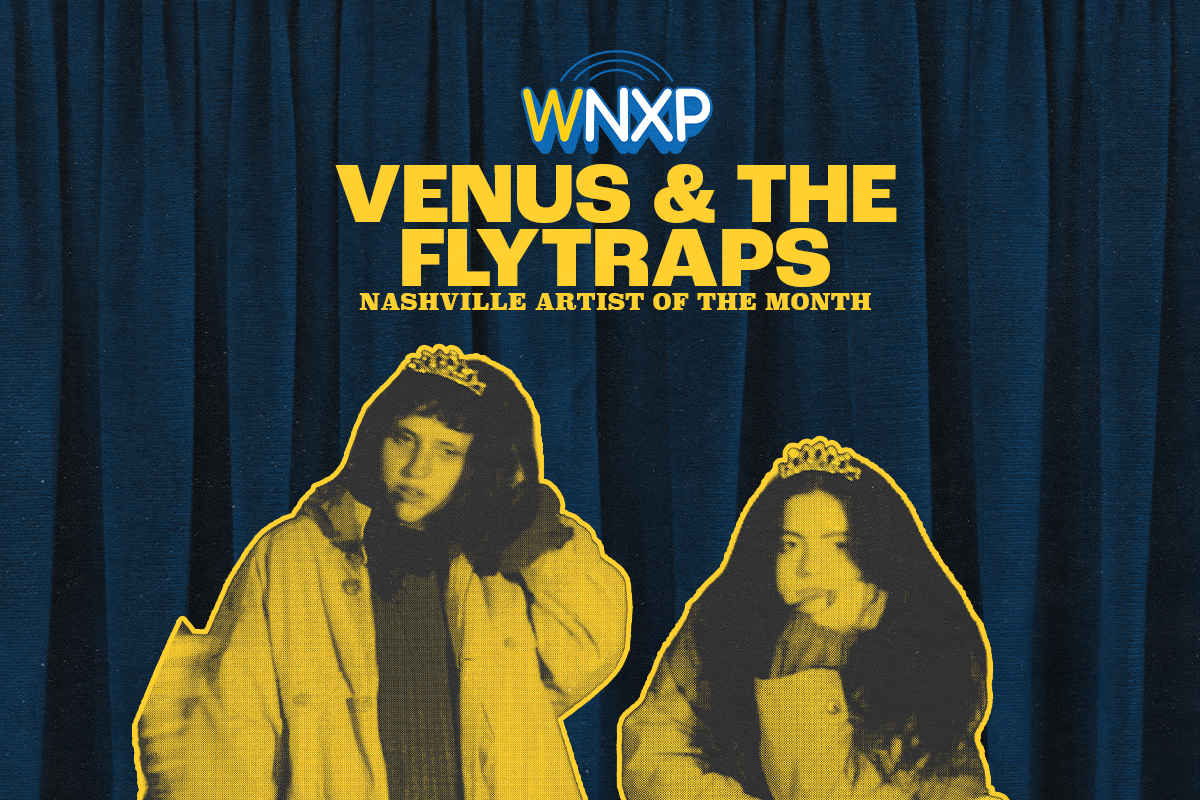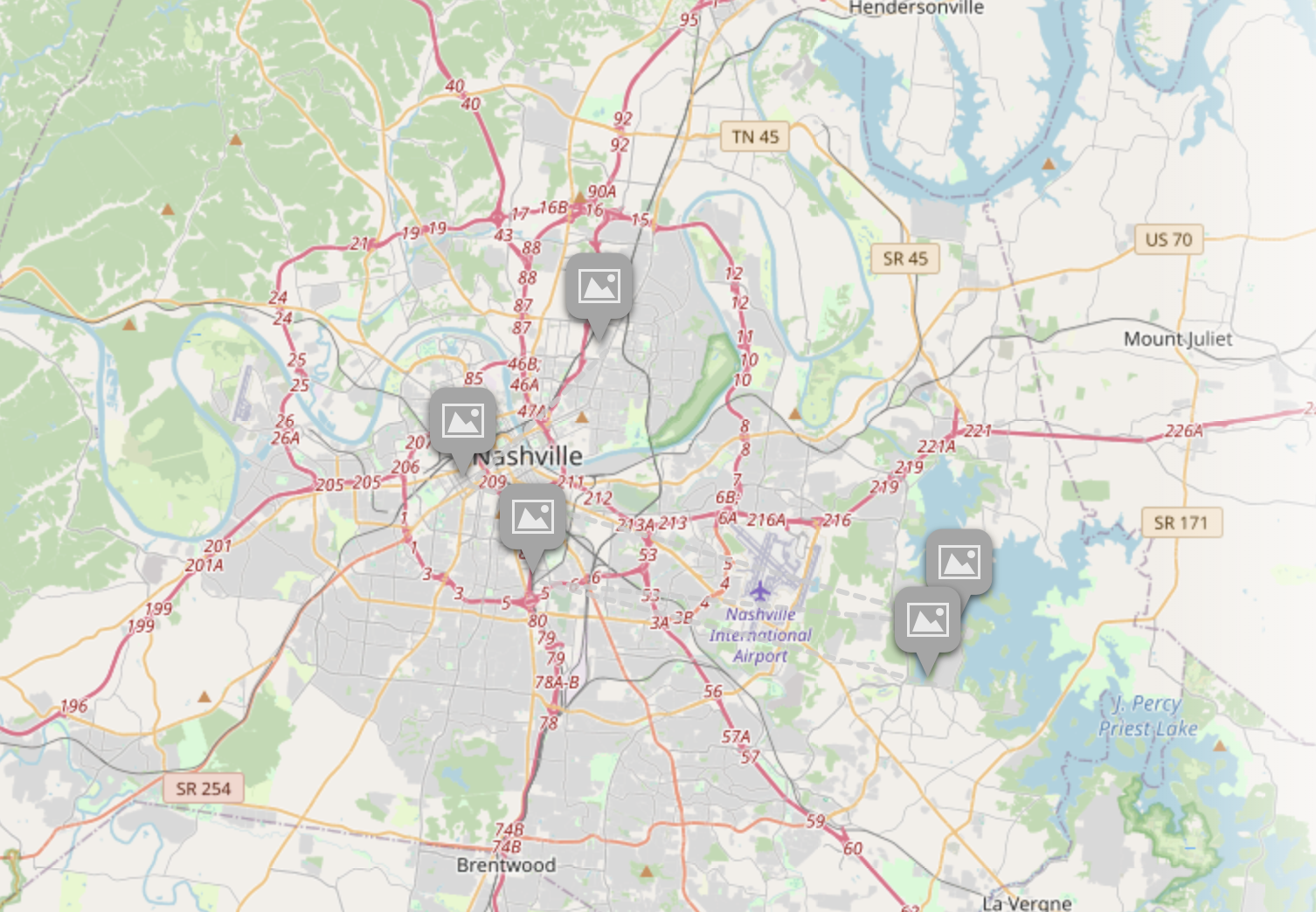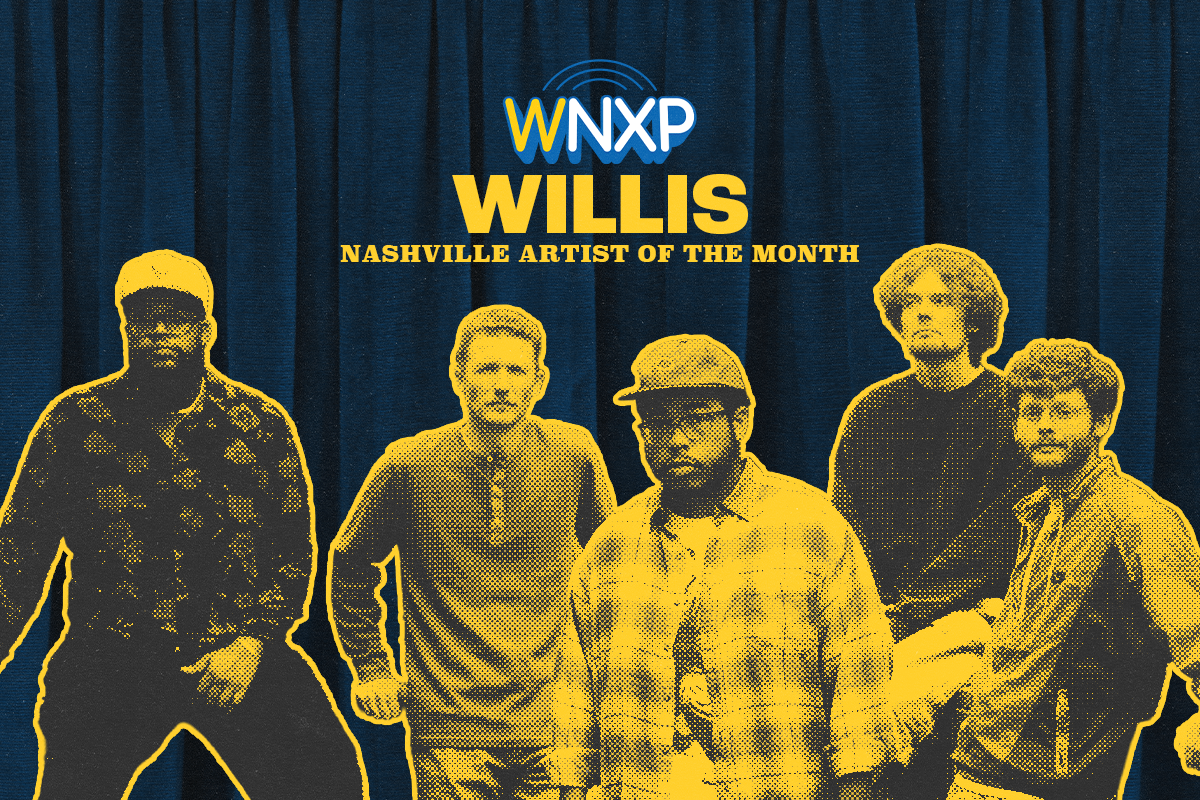It was just a year or two ago that Bren Joy was rummaging around in his parents’ Nashville attic and found vinyl LPs that both raised and answered questions for him. “I was cleaning some stuff out, looking for something else,” he recalled, “and I saw countless, countless boxes of records and I’m like, ‘What are all of these?'”
That was how he learned that his granddad had been among Nashville’s earliest Black record store owners, and absorbed first pressings of a number of records he revered into his personal collection.
The Zoom screen shows records displayed on shelves along Joy’s walls, and he’s taken down a select few, which he lifts, one by one, from a pile next to him.
“Of course, there is Anita Baker’s first one, which is crazy,” he said, referring to her pre-fame 1983 set, The Songstress. “This album actually isn’t on Spotify, which is really dope.”
“I have Freddie Jackson,” Joy went on, quickly flashing the cover of Jackson’s 1986 R&B chart-topper Just Like the First Time, before picking up the next album.
“And then New Edition,” he said, displaying 1988’s Heart Break. “The ‘Can You Stand the Rain’ single on here was crazy. This is a crazy original as well that I hold dear to my heart. One of my favorite boy bands, ever.”
That discovery helped Joy make sense of how he wound up in music with parents who appreciate good music, but work in finance. “And it was very heart warming finding this out, because it had to come from somewhere,” he reasons, “and it’s a big piece of music business, owning a record store. I feel like I get that spark and that fire for music business, and really kind of creating a whole sustainable world, from him.”
“World-building” is the kind of language that Joy’s come to apply to what he does as a singer, songwriter, arranger and producer of R&B with pop appeal and gospel, jazz and hip-hop reference points. He may have gotten a later start, compared with, say, kids posting their DIY recordings, but it was a running start, because he’d been paying close attention to the particulars of style.
As a teenager, Joy’s main artistic outlet was designing his own clothes, which he stitched together on a Singer sewing machine and sometimes bleached or dragged through gravel to make them look vintage. Senior year at Hillsboro High, he got into musical theater, through taking part in a production of “Hairspray,” and since it was time to choose a college path, he decided, without any great deliberation, to audition for the voice program at Belmont. He’d never even performed solo before.
“I was just like, “Yo, I want to major in this,'” he said, emphasizing how casually he took that leap. “‘Screw it. Let’s just do it. If it fails, it fails. If it works, it works.'”
At the time, Joy didn’t envision himself singing lead. He thought he’d become a background singer and vocal arranger. “I grew up in church, Baptist, and I had always been so accustomed to a lot of instrumental jazz music, a lot of Black music, a lot of R&B, soul, gospel, neo-soul, all of that,” he explained. “A lot of the music I was listening to involves so many intricate harmonies. It’s the part of music that I love the most.”
Joy was eager to dissect jazz intervals and how gospel mass choirs go from singing in robust unison to spreading into bright, brassy, melismatic parts. He said, “I went to my professors after hours and was like, ‘Yo, how can I break down Kirk Franklin’s background vocals?'”
Joy also had a more typical kind of horizon-broadening college experience thanks to his first roommate: “He was playing some Beatles tune, and I go, ‘What is this?'”
What followed was a 12-hour tour through the classic rock canon. What appealed to Joy the most were the pristinely recorded, West Coast pop harmonies of the Beach Boys. Covering their music became an obsession, but midway through college, he found himself losing interest in singing Pet Sounds cuts, or anything else.
“I kind of forgot about the roots that I loved in R&B and neo-soul and stuff,” he reflected. “So I think that was the problem, that I just had really forgotten about why I fell in love with music.”
In the midst of that mini-existential crises, one of Joy’s professors suggested that he try writing his own material, which would mean putting his own voice out front. That got him pondering what he admired about earlier generations of R&B front men: “just being so completely vulnerable. …Cuz I think it was also a time where socially and politically, the world was just very still very harsh towards Black men. And so to take down that guard and be like, ‘OK, I’m going to give you this sensuality,’ it’s really, really cool.”
“I really didn’t think I was going to like what I was writing,” Joy admitted, “but I just sat at the piano.”
He’d go to rehearsal rooms on campus, late at night, when he didn’t have to worry about anyone practicing opera or drums right on the other side of the wall, and record on his phone as his played piano and sang.
The sound quality of those voice memos might’ve been rough, but there was already some swagger and sophistication evident in his song ideas. He was, as he put it,”figuring myself out and what I believe in and really stand for,” exploring what he wanted to say about getting in touch with emotions and the social implications of getting ahead as a self-aware, young, Black man.
“Belmont is primarily white, you know?” he said. “So being there was big on just finding my identity, because I was surrounded by so many incredible artistic people, but just no one looked like me and knowing I didn’t relate to them in the culture aspect.”
Joy asked a friend of a friend, a musician who’d dropped out of the school to work in computer coding named Caleb Lee, to help him start recording. Lee was just as new to shaping studio projects as Joy was, and “turned me down the first time I asked him to produce,” Joy remembered.
They figured it out as they went, and the only studio they had at their disposal was Lee’s apartment, which meant that they could only make noise until 9 PM. Joy would have to duck into the closet to execute his own ambitious vocal arrangements.
“It’s a lot of him just standing there like, ‘Alright, let’s get the tenor part,’ and we record it,” Lee described. “And he’s like, ‘Alright, let’s record two or three more.’ And he’s just sitting there for four hours recording for all these choir parts, what one person in the choir would sing. And then my poor little 13 inch MacBook was trying to handle it all.”
Ordinarily someone who’s new to songwriting will toss out a ton of attempts before they arrive at something worth sharing. Joy not only fleshed out and laid down the first eight songs that he ever wrote—he envisioned how he’d present them on stage.
“He would describe that type of lighting scheme or like what he’d be wearing and he would be talking about, set transitions and stuff like that,” said Lee. “And this is just me talking to him, asking him, ‘What was this song about?'”
“I’m really big on the details,” Joy affirmed.
In 2018, Joy self-released his first track, “Henny in the Hamptons,” and it got prominent placement on a Spotify playlist. He wasted no time planning a showcase, while fielding inquiries from record labels.
“All of these people started hitting me up,” he said, “and I just got really overwhelmed. I’m like, ‘OK, there’s a lot of rich people, a lot of rich, white people, a lot of just really rich, one-percent men that are telling me all of these assumptions about what’s going to happen with my career and stuff.”
His response was, “If you’re about it, fly out.”
“There was no small talk,” he summarized. “It was just realism.”
For Joy, realism has nothing at all to do with limiting the scale of his ambitions—it’s about being ready to take big leaps in pursuit of the vision that’s continually expanding before him. So it’s best to not make narrow assumptions when it comes to the kind of career that he’s after. He knows how rare it is for a Black Nashville native to sign a major label R&B deal, like he did, and he’s already looking 10 steps down the road, preparing for his first proper tour with Pink Sweats, who he now counts as a duet partner and peer, and dreaming up more ways to use his voice.




